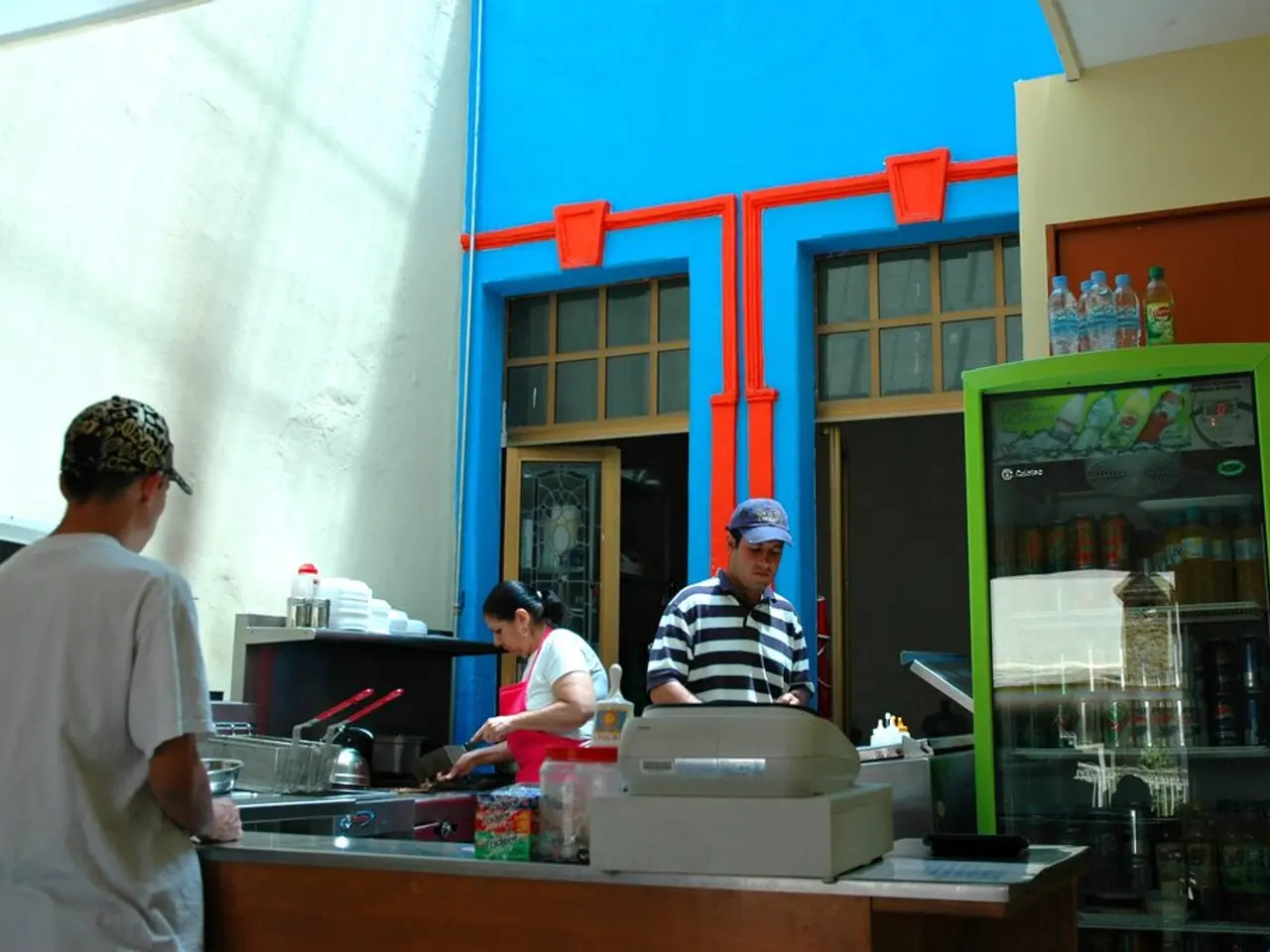Intense heat taking a toll on productivity? Here's how to cope and maintain focus.
In the sun-kissed town of Cagnes-sur-Mer, France, where the Mediterranean climate often reaches scorching temperatures, both professionals and employers are taking proactive steps to adapt to extreme heat, particularly during summer heatwaves.
Adapting to the Heat
Many outdoor and physical labor jobs, such as construction, landscaping, or public works, adjust by scheduling heavy work during cooler parts of the day, typically early morning or late afternoon, to avoid the peak sun hours. Workers are encouraged to wear lightweight, breathable, and light-colored clothing, along with hats and sunglasses, to reduce heat exposure. They also seek shaded areas during breaks and may use cooling vests or fans if available. Indoor workplaces, including offices, often rely on air conditioning or enhanced ventilation during heatwaves.
Employer Safety Measures and Legal Requirements
France has national regulations concerning occupational health that apply in Cagnes-sur-Mer. Employers are required to identify and evaluate heat risks in the workplace and document them, implementing preventive measures accordingly. These measures may include modifying work hours or productivity targets during extreme heat, providing shaded or air-conditioned rest areas, ensuring access to drinking water at all times, and organizing rest breaks to mitigate heat exposure.
Occupational health services may conduct medical monitoring, especially for vulnerable workers. Employers must also have protocols for heat-related emergencies, including training supervisors and workers on symptoms and first aid. The French Labour Code requires employers to take all necessary measures to ensure health and safety at work, including adapting to climatic conditions. During official heatwave alerts, issued by Météo-France and public health authorities, additional recommendations and sometimes mandatory measures are implemented.
Case Study: The Local Bakery
In the local bakery, manager Etienne Passeron and head chef Christophe Goncalvez are prioritizing quick work to preserve the cold chain. To reduce heat production, the adjusted menu features more fresh, summery dishes. The bakery maintains temperatures around 25 to 30 degrees, and the oven is now used up to 8 am to ensure reasonable temperatures. The bakery is also working extensively with refrigeration equipment, and they are minimizing the time cakes are left outside.
Sauce dishes that produce heat are not being emphasized in the adjusted menu. The bakery's workforce starts early, with Passeron beginning his day at 5 am to cope with the heat. Without air conditioning, temperatures in the laundry can reach up to 38 degrees in the afternoon.
In professions like laundry ownership and cooking, workers are exposed to high temperatures daily. These professionals must take extra precautions to ensure their health and productivity, such as starting work early, staying hydrated, and using cooling technologies when possible.
By taking these measures, professionals and employers in Cagnes-sur-Mer are demonstrating a commitment to the health and wellbeing of their workforce, ensuring productivity remains high even during the hottest summer days.
In the local bakery of Cagnes-sur-Mer, France, the managers prioritize health and wellness by adapting work practices to the heat, such as starting early and reducing heat production, aligning with the French Labour Code's requirements for maintaining a safe and healthy workplace.
Employing fitness and exercise strategies, like early starts and staying hydrated, the workers in the local bakery ensure their well-being, contributing to the overall workplace-wellness and health-and-wellness standards in this sun-kissed town.




